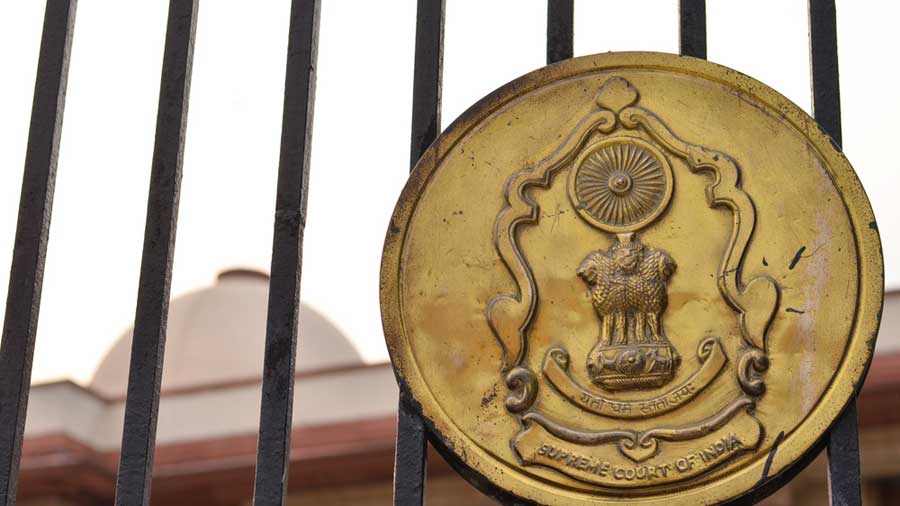
Hearing on blaming Tablighi congregation for Covid spread Some media outlets take communal angle on everything: SC
The apex court also expressed concern that certain unregulated social media platforms face no accountability and listen 'only to the powerful'
R. Balaji | TT | New Delhi | 03.09.21: Some media outlets in India show “everything with a communal angle” and the country gets a bad name, a Supreme Court bench headed by Chief Justice N.V. Ramana said on Thursday.
The court also expressed concern that social media platforms faced no accountability and listened “only to the powerful”, while spouting “fake news” and “slander” against judges, institutions and ordinary people.
The bench was hearing a year-old petition from the Jamiat Ulama-i-Hind that sought an injunction on the media against blaming the spread of Covid on a Tablighi Jamaat congregation in Delhi in mid-March last year and against demonising the Muslim community.
Jamiat had stated that some media outlets had used terms such as “corona jihad”, “corona terrorism” and “Islamic resurrection” to accuse the Tablighi Jamaat of deliberately spreading Covid and slander the entire Muslim community.
“The problem is, everything in this country is shown with a communal angle by a section of the media and it is the country that is going to get a bad name ultimately,” the bench, which included Justices Surya Kant and A.S. Bopanna, said.
Justice Ramana asked solicitor-general Tushar Mehta, who was appearing for the Union government, whether any attempt had been made “to regulate these private Web channels”.
The Chief Justice said: “There is no control over fake news and slandering in Web portals and YouTube. If you go to YouTube, you can see how fake news is circulated. Anyone can start a channel on YouTube and circulate fake news.”
“Social media only listens to the powerful voices, and several things are written against judges and institutions without any form of accountability.... This is the condition of institutions, forget about the common man.”
He continued: “I have not come across (instances) so far (of) these social media (platforms) — Twitter, Facebook and YouTube — responding to common people. They never respond. There is no accountability for them. They say this is their right.”
Mehta said the print media and TV channels were already governed by statutory provisions, and the government had framed new IT rules to regulate Web portals.
These new rules have, however, been challenged by various media houses in several high courts on the ground that they infringe on the media’s and citizens’ right to free speech.
Mehta said the Centre had moved an application for all the high court cases against the new IT rules to be transferred to the apex court.
The bench said it would tag the Jamiat petition to the Centre’s transfer plea.
Senior advocate Sanjay Hegde, appearing for one of the parties that has challenged the new IT rules, agreed with the Chief Justice about the social media platforms’ unbridled powers, saying Twitter had blocked his account without notice.
Justice Ramana regretted that the only remedy in such cases was to move a civil suit in a court.
“What is the use of powerful (media) debates if only people who are powerful are allowed to get their matters redressed and the common man’s grievance is not redressed?” he said.
The new IT rules prohibit the digital dissemination of news or views that, among other things, insult or harass on the basis of gender, harm children, communicate false or misleading information, are libellous, or are racially or ethnically objectionable.
The apex court had issued notices to the News Broadcasters Association and the Press Council of India on the petition.

0 Response to "Hearing on blaming Tablighi congregation for Covid spread Some media outlets take communal angle on everything: SC"
Post a Comment
Disclaimer Note:
The views expressed in the articles published here are solely those of the author and do not necessarily reflect the official policy, position, or perspective of Kalimpong News or KalimNews. Kalimpong News and KalimNews disclaim all liability for the published or posted articles, news, and information and assume no responsibility for the accuracy or validity of the content.
Kalimpong News is a non-profit online news platform managed by KalimNews and operated under the Kalimpong Press Club.
Comment Policy:
We encourage respectful and constructive discussions. Please ensure decency while commenting and register with your email ID to participate.
Note: only a member of this blog may post a comment.